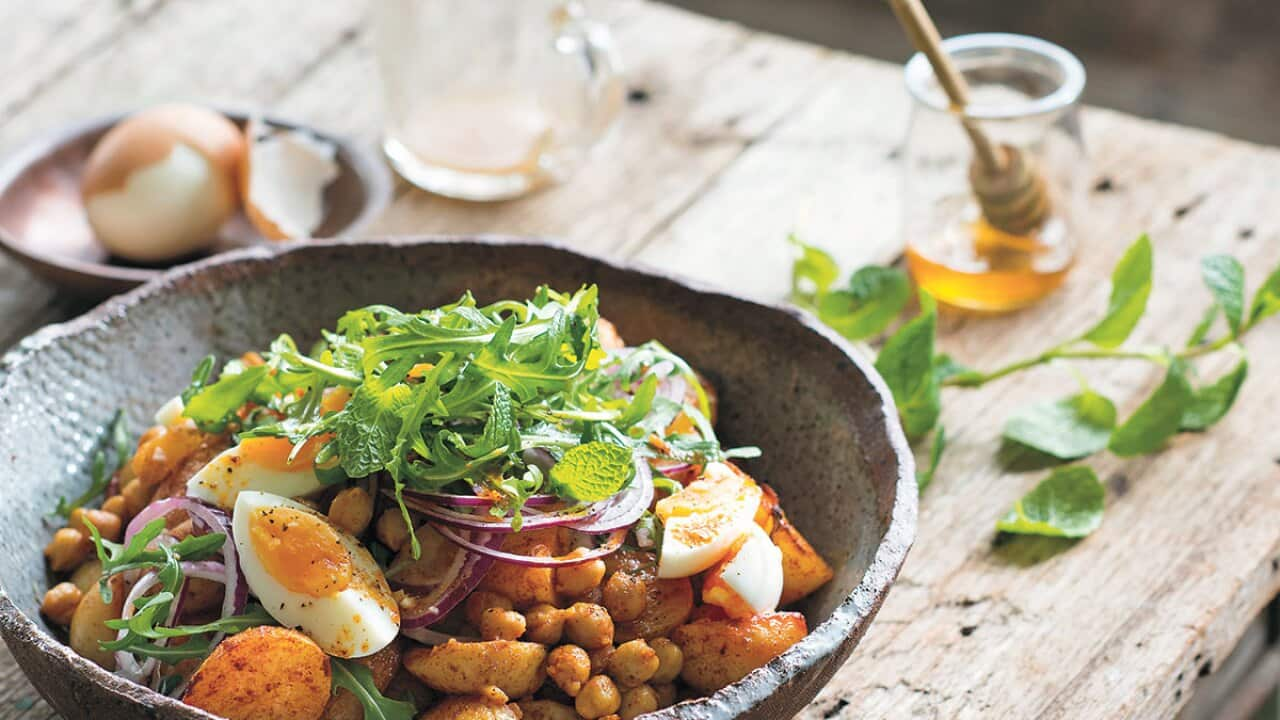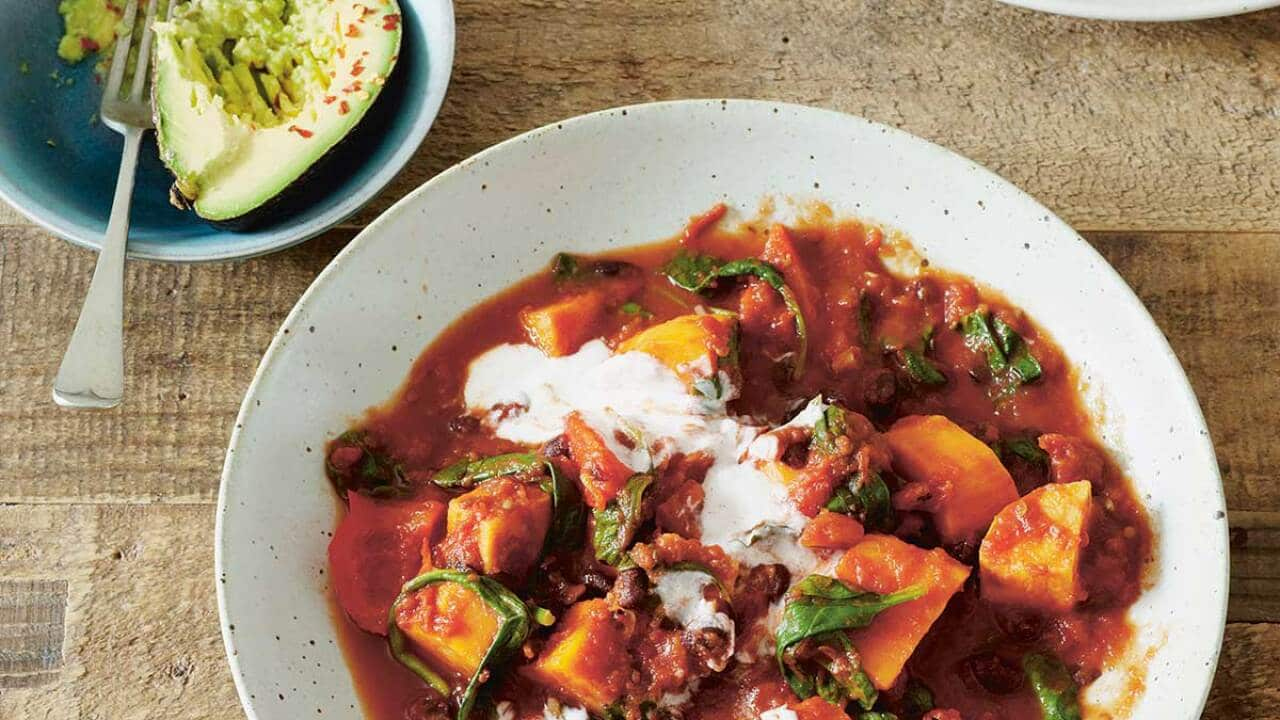In times past, the only carb foods to hand for our Paleo forebears were good carbs – fruits, berries, shoots, seeds, beans, roots and tubers. And they ate what they could gather or they went hungry. Their naturally roving eye, however, was always on the lookout for new and tasty experiences to fill a rumbling tummy – greener grass, fatter game, riper fruit, choicer berries, nuts, seeds, tubers, and buzzing bees suggesting honeycomb was not too far away.
Our world of supersized supermarkets with groaning aisles is very different. We still have that roving eye, but it’s almost overwhelmed by a surfeit of choice when it comes to food, much of it highly refined, with ingredient lists that often sound like they really belong in a pharmacy. So we end up with dietary dilemmas and endless advice (often contradictory) on the ‘good things to eat’ and the ‘bad to avoid’. But sorting the good from the not-so-good (in terms of wellbeing and waistline) is not rocket science – Michael Pollan sums it up in a nutshell: ‘Eat foods made from ingredients you can picture in their raw state or growing in nature.’ Putting that into practice, picture what you’re about to put in your shopping trolley growing on a farm, or in a garden, or grazing in a field in the not too distant past.
If it’s a challenge to work out what you are holding in your hands (say, a large tin of ‘protein powder’) is actually made of, let alone visualise its ingredients in their raw state or growing in nature, back on the shelf it goes. There’s no need, however, to take the picture principle to the level of obsessive five-star purity. Occasional treats are very much a part of life. Gluten-free treat: the crust on this is made with coconut, nuts, dates, ginger and cinnamon.
Gluten-free treat: the crust on this is made with coconut, nuts, dates, ginger and cinnamon.

Source: Murdoch Books
Making better choices about the food we eat – where it has come from, how it’s grown and how animals are farmed – matters. It’s not only good for our health, it’s vital for the health of our planet. Our food should not only be sustaining, but sustainable. We appreciate that we are very fortunate to live in times when it’s possible to be fussy about food sources and choices in this way, which was not generally an option for our forebears and is certainly not for many people in some parts of the world today.
What’s gluten got to do with it?
Gluten (Latin for ‘glue’), a protein found in wheat, rye, barley and triticale [see for the Australian Coeliac Society position on oats], helps give bread dough and cake batter elasticity to help them rise and hold their shape. Some people can’t tolerate gluten and need to eliminate it completely from their diet. This includes anyone with coeliac disease or dermatitis herpetiformis (a distressing gluten-sensitive chronic skin condition). People with gluten intolerance (non-coeliac gluten sensitivity) can tolerate small amounts of gluten but they may have to cut back significantly, depending on how sensitive they are. Coeliac disease can be serious - It’s actually the most common and one of the most under-diagnosed hereditary autoimmune diseases affecting children and adults. Around one in every 100 people in Australia and New Zealand suffer from it.
When someone with coeliac disease eats something that contains gluten, they have an immune reaction in their small intestine that damages the intestinal villi (small finger-like projections that line the small intestine), reducing its ability to absorb nutrients from food. This may lead to deficiencies in certain vitamins and minerals the body needs for growth, health, healing and energy.
Not just grains
All plant foods contain carbs to a greater or lesser extent – fruits, vegetables, legumes, grains and some nuts – as do milk and yoghurt, but not most cheeses (the whey is drained away so it is just protein and fat). Exceptions include cottage cheese and ricotta. Carbs, or carbohydrates to give them their full name, are one of four major molecules in our foods, and like two of the others – protein and fat – they provide us with energy (calories or kilojoules). The fourth major molecule is water. Most foods are a mix, some have two or three of them, others have all four. All carbs have some water, but some (grains, legumes, seeds and nuts) also put protein and fats on the plate. And there’s more: good carbs serve up a swag of micronutrients, including vitamins B, C and E, and minerals including magnesium, potassium and calcium. Grate a young parsnip like a carrot (the flavour isn't as strong) to create this that delivers healthy carbs along with fibre and potassium.
Grate a young parsnip like a carrot (the flavour isn't as strong) to create this that delivers healthy carbs along with fibre and potassium.

Source: Murdoch Books
Fruit and veg
When we eat fruit or tubers, our bodies convert their sugars and starches into the glucose that provides energy to power our body, our brain, our blood cells, our reproductive organs and our muscles during vigorous exercise.
Carbs plus protein
Beans, peas, chickpeas and lentils are packed with good things for good health, including slowly digested carbs, fibre, vitamins and minerals. What makes them stand out from the plant-food crowd is their protein – typically about 8-10 grams per half cup (100 g / 3 ½ oz) of cooked dried beans, peas or lentils (twice that of grains). This has 14 g of protein and 30 g of carbs per serve.
This has 14 g of protein and 30 g of carbs per serve.

The food offered to homeless communities should have a cultural connection, too. Source: Murdoch Books

Source: Murdoch Books
Half a cup of cooked chickpeas has 14g of carbs and 7g of protein - match them with eggs, potato and smoked paprika in and you've got a nutrition-packed meal.
This is an edited extract from The Good Carbs Cookbook by Alan Barclay, Philippa Sandall & Kate McGhie (Murdoch Books, pb, $39.99). The book contains both grain-free and grain-using recipes.



